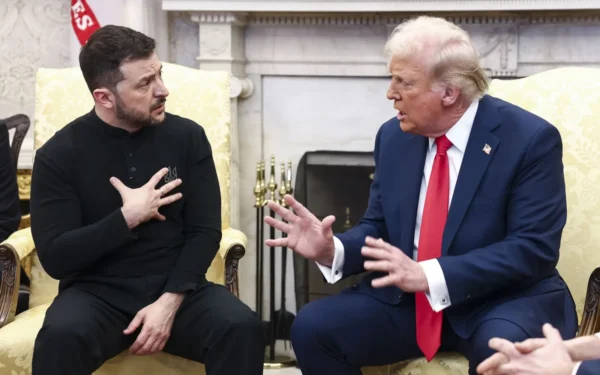The recent clash between Donald Trump and Volodymyr Zelensky at the White House in front of the global media risks becoming the symbol of the end of the Western order that has existed since World War II. The West, once a coalition of nations bound by shared values and cooperative approaches to defense, economy, and governance, is increasingly shifting toward a new paradigm dictated by raw power and strategic pragmatism, risking a regression into an Old Wild West where might prevails over principles.
For the past 80 years, the West has justified its actions, including its mistakes and coercive actions under the guise of higher ideals—liberty, democracy, and the protection of human rights. Even when policies were flawed or controversial, they were still framed within a moral and ideological structure that legitimized them. However, Trump’s philosophy fundamentally challenges this framework. His approach strips away any ethical justification, leaving behind only brute strength and opportunism. Furthermore, the boundary between institutional decision-making and personal political strategy has become dangerously blurred.
At the heart of the Trump-Zelensky rift is not just foreign policy but also personal political grievances. Zelensky, by indirectly aligning with the Democrats and, more crucially, by not assisting Trump in his past attempts to discredit Joe Biden’s son over his business dealings in Ukraine, has become a political adversary rather than an ally in a broader geopolitical struggle. In this new logic, these past actions matter more than the strategic necessity of containing Russian expansionism.
In the short term, this shift allows Trump to strengthen his position among his isolationist electorate, promoting policies that reduce American spending on NATO, international aid, and global initiatives aimed at fostering democracy. The appeal to domestic economic concerns is clear—fewer dollars spent abroad mean a more appealing narrative for the American taxpayer. However, this new paradigm also sets a precedent where power dictates the rules of engagement, allowing any actor on the global stage to operate with the same logic.
If Putin ultimately benefits from his aggression in Ukraine, why should North Korea not attempt the same strategy? Why should China not seize Taiwan? Why should Middle Eastern states continue to tolerate Israel’s presence if power alone dictates legitimacy? By accusing Zelensky of risking World War III by resisting Russian aggression, Trump inadvertently signals to future authoritarian leaders that force, not diplomacy, will determine international affairs.
The end result is a return to an era reminiscent of the Old Wild West, where strength, rather than shared principles, governs the world order. The Western unity that once guided global stability is eroding, replaced by a volatile landscape where any leader bold enough to defy the old norms may find themselves emboldened by the very philosophy Trump now champions.
Marco Bastiani is an Italian journalist based in Florence. He is the founder of Florence Daily News, launched in 2011, and has been working in journalism since 1998. Formerly political editor at Il Giornale della Toscana, he later took on senior communication roles in both public and private institutions. A board member of the Tuscan Foundation of the Order of Journalists and a member of ASET, the Tuscan association of food, wine and agri-food journalists, he loves the sea and Greece, and has two children.

